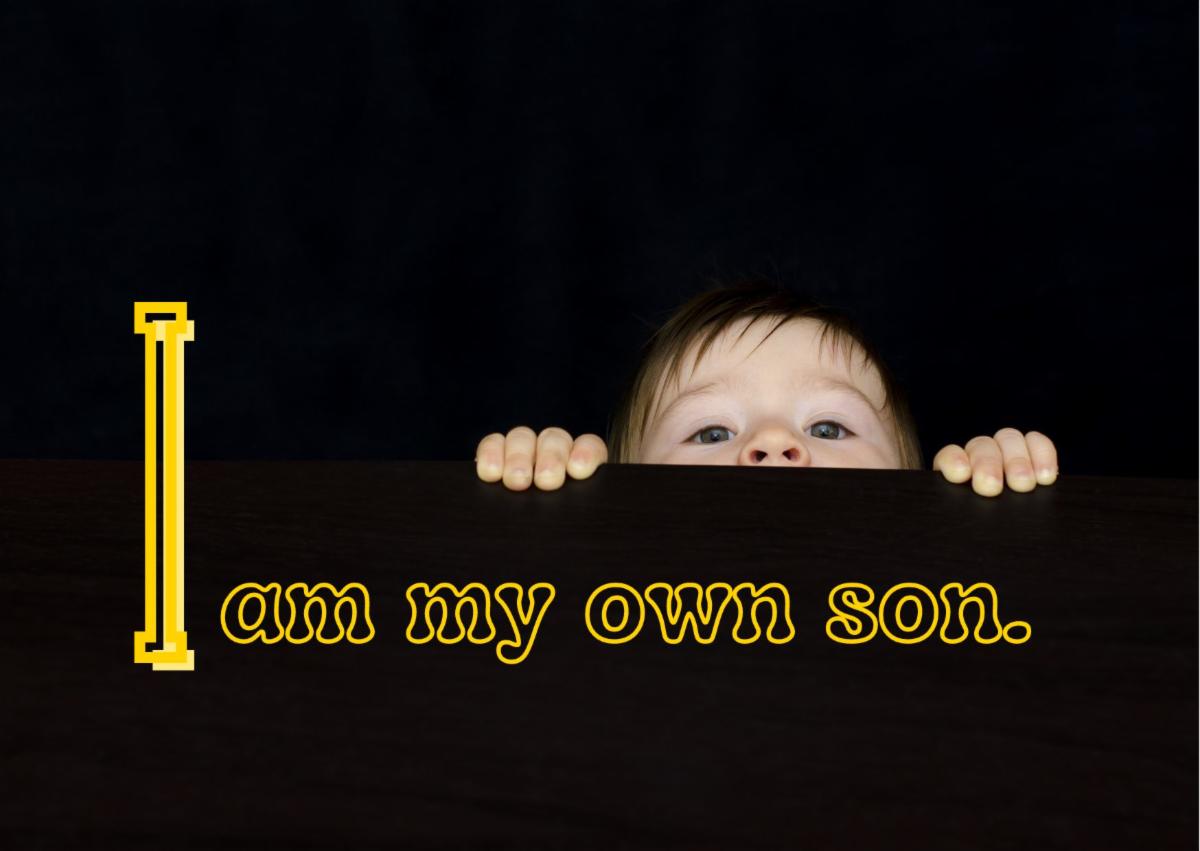
“I am my own son.”
Milo, in his innocent and playful nature, loves to engage in these morning games. He’ll wake up and cheerfully call out, “Mom, Dad, I’m ready to wake up!” Then, as I enter his room, he’ll gleefully hide under the covers, pretending to be missing. He wants me to play along, to pretend that I can’t find him, “Where is Milo?” He must have vanished.” When I eventually find him, I’ll ask if he is indeed “Milo.” This morning, his response was not what I had expected… when I asked who he was, he stated, “I am a son.” Thinking it would be a cute exchange, I said, “Whose son are you?” What came next was not what I had expected… “I am my own son,” he confidently asserted. Silly boy.
In his own unique way, Milo asserted his autonomy, declaring that he only had to answer for himself. This resonates with our culture, which often grapples with authority of any kind. We tend to assert that we are the masters of our destiny and that we have no one to answer to. This cultural struggle perhaps explains why one of the most quoted phrases from the Decalogue (ten commandments) in the New Testament is, “Honor your father and your mother, that your days may be long in the land that the LORD your God is giving you.” (Exodus 20:12).
“Honor your father and mother,” is a seemingly simple phrase, yet it carries a profound weight. As Paul later states, it holds a promise of a prosperous existence. For a child, this earliest relational bond is formed with the framework of honoring and esteeming their parents. God wants us to grasp, from our earliest memories, the significance of assigning value to those who gave us life. Because if we can revere flawed and imperfect people with such significance, how much more will we be able to honor our Father in heaven.
When Jesus first quotes this particular instruction, he wants to ensure that we understand the gravity of what is at stake as he trains the Pharisees and Scribes on God’s intentions.
Matthew 15:1-9 – “Then Pharisees and scribes came to Jesus from Jerusalem and said, 2 “Why do your disciples break the tradition of the elders? For they do not wash their hands when they eat.” 3 He answered them, “And why do you break the commandment of God for the sake of your tradition? 4 For God commanded, ‘Honor your father and your mother,’ and, ‘Whoever reviles father or mother must surely die.’ 5 But you say, ‘If anyone tells his father or his mother, “What you would have gained from me is given to God,” 6 he need not honor his father.’ So for the sake of your tradition you have made void the word of God. 7 You hypocrites! Well did Isaiah prophesy of you, when he said: 8 “‘This people honors me with their lips, but their heart is far from me; 9 in vain do they worship me, teaching as doctrines the commandments of men.”
Each time the word used here for honor is the Greek word τιμάω timáō, and it means to prize or fix a valuation upon; to revere —honor. What Jesus is calling into question is the hypocrisy of the religious leaders. He informs them that honor connects to the value or priority that you place on this relationship and, by approximation, the commands of God.
You cannot say that you honor your parents and, in the same way, dishonor them. You also can’t praise God with your lips and then give Him no significance in your heart. It is easy to conclude what people value the most. Jesus says as much in his Sermon on the Mount: “For where your treasure is, there your heart will be also” (Matthew 6:21).
Milo was only being silly, and what he wanted most was to be tickled, so he said something outrageous to get my attention. My concern is that many people honor God with their lips but do not treasure Him. They are like the Pharisees and scribes, looking for loopholes and workarounds. They see God’s principles and void them so that they may honor themselves. And when we do this, we become our own master, and we proudly declare, “I am my own son.”